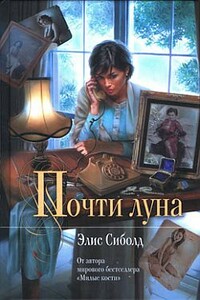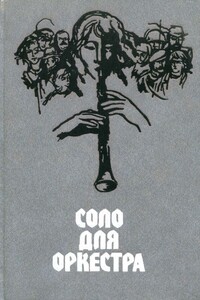“Fuck you,” my brother whispered without looking up.
My mother froze. The car opened up. Full of hate and tension – a riptide of blood to swim through.
“Buck,” she said, remembering the shortened name just in time, “will you look at me?”
He glared over the front seat, boring his fury into her.
Eventually my mother turned back around and Samuel, Lindsey, and my brother could hear the sounds from the passenger seat that she was trying hard not to make. Little peeps and a choked sob. But no amount of tears would sway Buckley. He had been keeping, daily, weekly, yearly, an underground storage room of hate. Deep inside this, the four-year-old sat, his heart flashing. Heart to stone, heart to stone.
“We’ll all feel better after seeing Mr. Salmon,” Samuel said, and then, because even he could not bear it, he leaned forward toward the dash and turned on the radio.
It was the same hospital that she had come to eight years ago in the middle of the night. A different floor painted a different color, but she could feel it encasing her as she walked down the hall – what she’d done there. The push of Len’s body, her back pressed into the sharp stucco wall. Everything in her wanted to run – fly back to California, back to her quiet existence working among strangers. Hiding out in the folds of tree trunks and tropical petals, tucked away safely among so many foreign plants and people.
Her mother’s ankles and oxford pumps, which she saw from the hallway, brought her back. One of the many simple things she’d lost by moving so far away, just the commonplace of her mother’s feet – their solidity and humor – seventy-year-old feet in ridiculously uncomfortable shoes.
But as she walked forward into the room, everyone else – her son, her daughter, her mother – fell away.
My father’s eyes were weak but fluttered open when he heard her enter. He had tubes and wires coming out of his wrist and shoulder. His head seemed so fragile on the small square pillow.
She held his hand and cried silently, letting the tears come freely.
“Hello, Ocean Eyes,” he said.
She nodded her head. This broken, beaten man – her husband.
“My girl,” he breathed out heavily.
“Jack.”
“Look what it took to get you home.”
“Was it worth it?” she said, smiling bleakly.
“We’ll have to see,” he said.
To see them together was like a tenuous belief made real.
My father could see glimmers, like the colored flecks inside my mother’s eyes – things to hold on to. These he counted among the broken planks and boards of a long-ago ship that had struck something greater than itself and sunk. There were only remnants and artifacts left to him now. He tried to reach up and touch her cheek, but his arm felt too weak. She moved closer and laid her cheek in his palm.
My grandmother knew how to move silently in heels. She tiptoed out of the room. As she resumed her normal stride and approached the waiting area, she intercepted a nurse with a message for Jack Salmon in Room 582. She had never met the man but knew his name. “Len Fenerman, will visit soon. Wishes you well.” She folded the note neatly. Just before she came upon Lindsey and Buckley, who had gone to join Samuel in the waiting room, she popped open the metal lip of her purse and placed it between her powder and comb.
By the time Mr. Harvey reached the tin-roofed shack in Connecticut that night, it promised rain. He had killed a young waitress inside the shack several years before and then bought some new slacks with the tips he’d found in the front pocket of her apron. By now the rot would have been eclipsed, and it was true, as he approached the area, that no rank smell greeted him. But the shack was open and inside he could see the earth had been dug up. He breathed in and approached the shack warily.
He fell asleep beside her empty grave.
At some point, to counter the list of the dead, I had begun keeping my own list of the living. It was something I noticed Len Fenerman did too. When he was off duty he would note the young girls and elderly women and every other female in the rainbow in between and count them among the things that sustained him. That young girl in the mall whose pale legs had grown too long for her now-too-young dress and who had an aching vulnerability that went straight to both Len’s and my own heart. Elderly women, wobbling with walkers, who insisted on dyeing their hair unnatural versions of the colors they had in youth. Middle-aged single mothers racing around in grocery stores while their children pulled bags of candy off the shelves. When I saw them, I took count. Living, breathing women. Sometimes I saw the wounded – those who had been beaten by husbands or raped by strangers, children raped by their fathers – and I would wish to intervene somehow.







